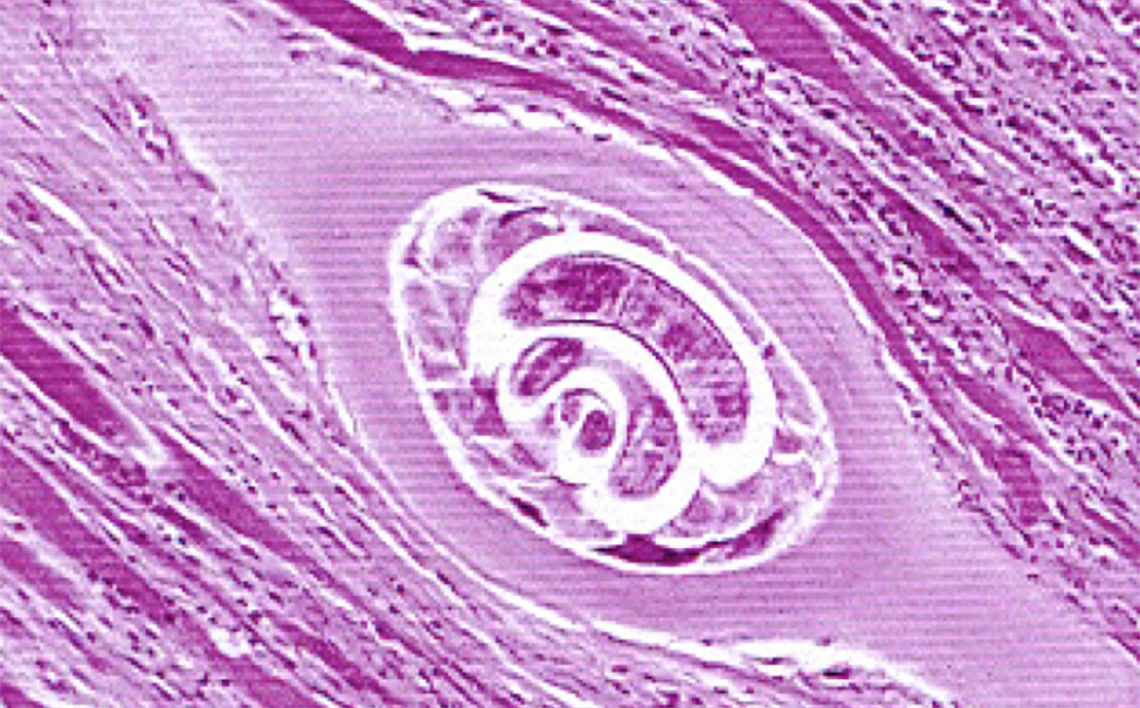Wildlife Health Diseases affecting Idaho's wildlife
About Trichinosis
Trichinosis is a disease caused by a nematode parasite, Trichinella spiralis.
Commonly Affected Species:
Signs Of Disease
Animals infected with trichinosis generally appear healthy. Trichinosis is hard to detect when butchering because there are few lesions and the cysts are very small. The cysts are most common in the muscles of the jaw, tongue, and diaphragm. Animals that are infected with adult worms may have swollen intestines with small bruises on the intestinal wall. Affected muscles and associated lymph nodes may be soft and swollen.
Where is Disease Found?
Trichinosis occurs throughout North American and can be found in grizzly bears, polar bears, black bears, feral swine, mountain lions, wolverines, wolves, coyotes, and foxes. Trichinosis has been documented in black bears and mountain lions in Idaho. Trichinosis has been documented in humans associated with consuming home-made jerky made from a cougar and a black bear in Idaho.
How Can I Protect Myself?
Humans can get trichinosis by eating undercooked meat from infected animals. All bear and mountain lion meat should be thoroughly cooked, including meat used to make jerky, prior to consumption.
Samples to Collect
If there is concern about this condition, contact a conservation officer or an Idaho Department of Fish and Game Regional Office. Appropriate samples can be collected for testing if deemed necessary.
Can I Eat The Meat?
Meat from potentially infected animals should be well cooked with an internal temperature of at least 160° F. Freezng meat is not reliable for killing the parasite unless the freezing temperature reaches 5° F for at least 20 days. Smoking, drying, salting or microwaving does not always kill the parasite. Do not feed meat from mountain lions or bears to dogs or cats.
What is IDFG doing to help manage this disease?:
Control or prevention of Trichinella spp. in wildlife is impractical. Information is made available to hunters and trappers about relative risks of consuming potentially infected animals.
How do I learn more about this disease?

